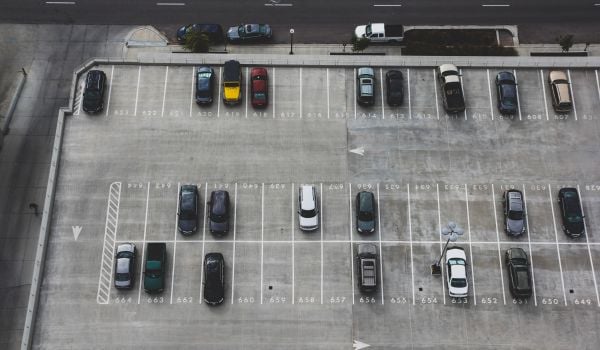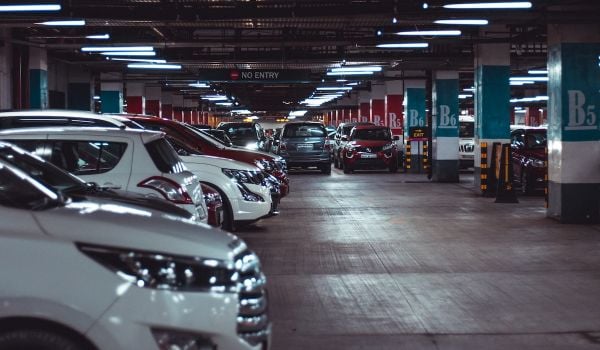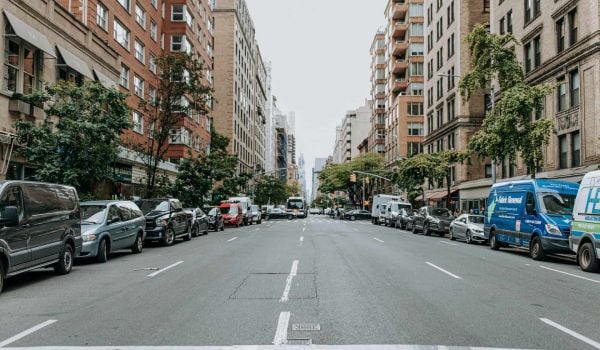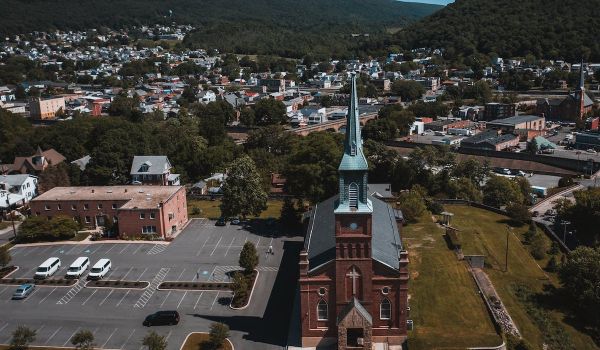This story was originally published by Strong Towns.
Like many cities throughout North America, Norman, Oklahoma, faces a problem: They have too much parking. Large swaths of black pavement sit empty, even on the busiest shopping days of the year. And since the 50s, each time a developer wants to create another business, city parking laws have required the developer to contribute more parking to the already abundant lots. Last year, however, those rules changed for Norman.
When Councilman Matt Peacock took a look at the city’s parking code, he found a solution to help slow the problem of too much parking…by rewriting just one word.
“We found a way to crack the code a little bit, in which there was not a lot of public pushback,” said Peacock. “Basically, all we did in the ordinance was change the word ‘required’ to ‘recommended.’” The city voted a unanimous yes to the change in wording and, within a few short months, Norman’s parking laws became “recommendations” for developers versus a blanket requirement.
Excess parking, most commonly caused by parking mandates, costs the public in extra infrastructure maintenance without creating a taxable base to match those costs. For Norman, it’s been an even more complicated issue.
“Oklahoma is the only state in the nation that requires its cities to be funded by sales tax alone,” said Peacock. “That means cities can’t collect property taxes. We can’t levy an income tax and this is all by state statute. So when there are massive empty parking lots that are separating buildings by acres, all I see is a lost sales tax base.”
By removing parking mandates, the city of Norman hopes it will encourage local developers to invest in creating more businesses. “[Parking mandates] raise the barrier to entry so high that you don’t get a lot of local developers,” said Peacock. “But you get a lot of corporate developers because they’re the only ones who can buy the amount of land that it takes to put in the building and the parking.”
When Norman’s required parking was still in effect, there were a few places within the city that were exempt from the rules due to a different zoning code. Local developer Cameron Brewer says that if it weren’t for the pocket of exception within the city, he and his team of co-developers would not have refurbished an abandoned Coca-Cola bottling distribution plant (and before that an autobody shop) into a tap house restaurant.
“We would not have pursued this property if there were parking requirements on it,” said Brewer. “Because it would not have been feasible based on what potential land there was.”
“From a development perspective it was important to not have that parking requirement,” said Brewer. “We’ve essentially provided parking with a little bit of available land next to us: catty-corner from us, there’s a city parking lot that was underutilized most hours of the day, and there is an abundance of street parking.”
Because the parking laws are now recommended instead of required, developers hold a bigger responsibility of tuning in to city needs and proposing an appropriate amount of parking for their business.
“Where the recommended ordinance really comes into a positive effect is when there’s a larger collection of users that can use a shared parking field,” said local architect Rick McKinney. “That’s when the developer needs to really think how can the parking be reduced but still be satisfied. And I think that’s a benefit to everybody.”
The inspiration for removing parking requirements, and creating a better Norman, started many years ago. There wasn’t just one “ah-ha” moment, but a collection of many insights. One such insight came from when Peacock, Brewer, and a few others traveled through a program (Urban Land Institute) focused on learning from other cities. The group traveled to Fayetteville, which was the only nearby city to have removed parking minimums and was embracing a new bike culture.
“We thought, why can’t Oklahoma do it? Why can’t Norman do it? And so [Fayetteville] was the evidence that we just need to shift our priorities from moving cars to moving people,” said Peacock. “And it’s really as simple as that, you know, it’s not necessarily anti-car [and no parking]. It’s just, why should the car be the only option?”
Brewer, who also works as a Small Business Administration (SBA) lender, says even though parking as a recommendation hasn’t been enacted that long, it has peaked a new wave of interest. “I’ve talked to several different business owners who are looking at this from a financing side and it’s really made them think, ‘What does my business need?’”
“Parking should be a function of the market, not a function of the building code,” said Peacock. “And so a developer should be able to say how much parking he needs for his development. If he wants to put in less, that’s on him whether his development fails or not. People don’t need city codes to tell them how much more parking they need.”
Seairra Sheppard serves as the Staff Writer/Multimedia Creator for Strong Towns.
















